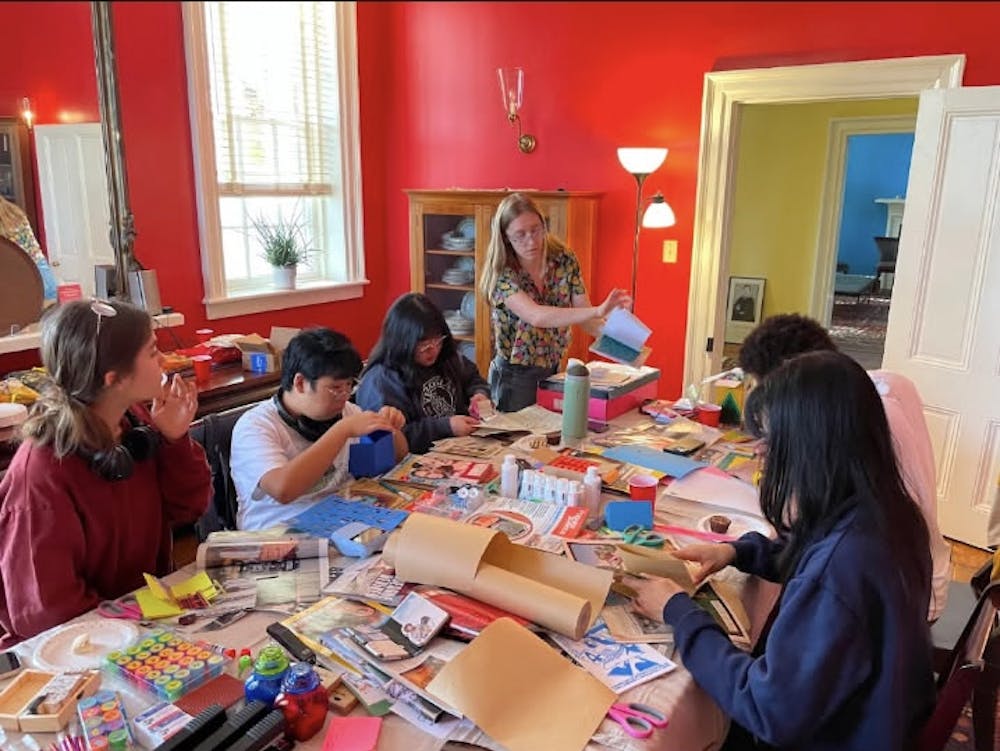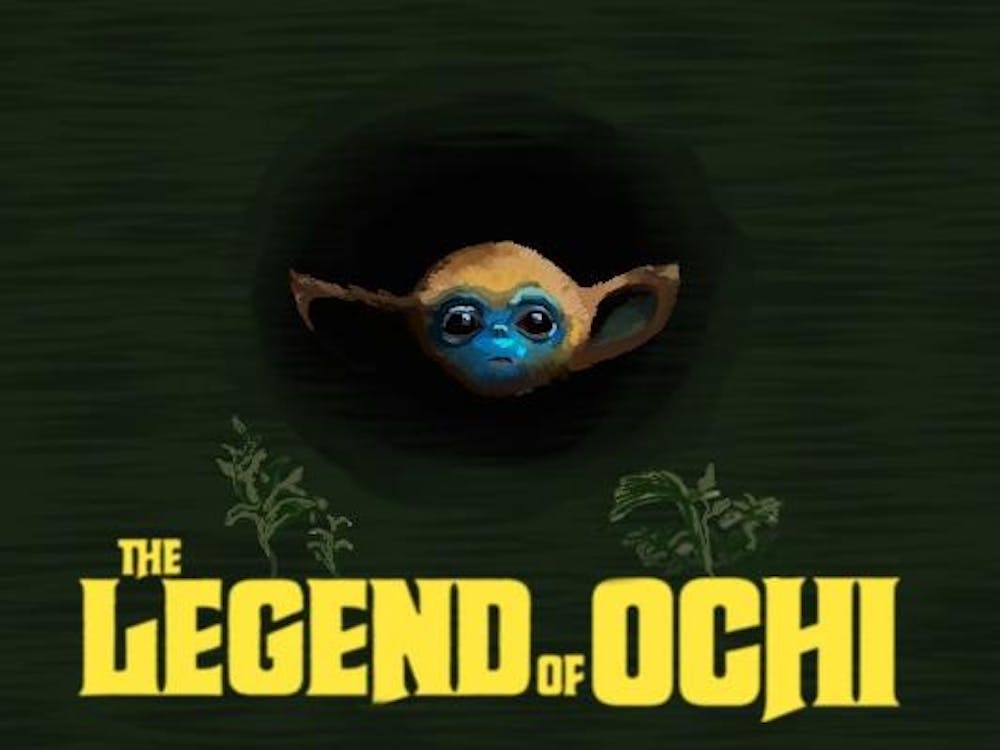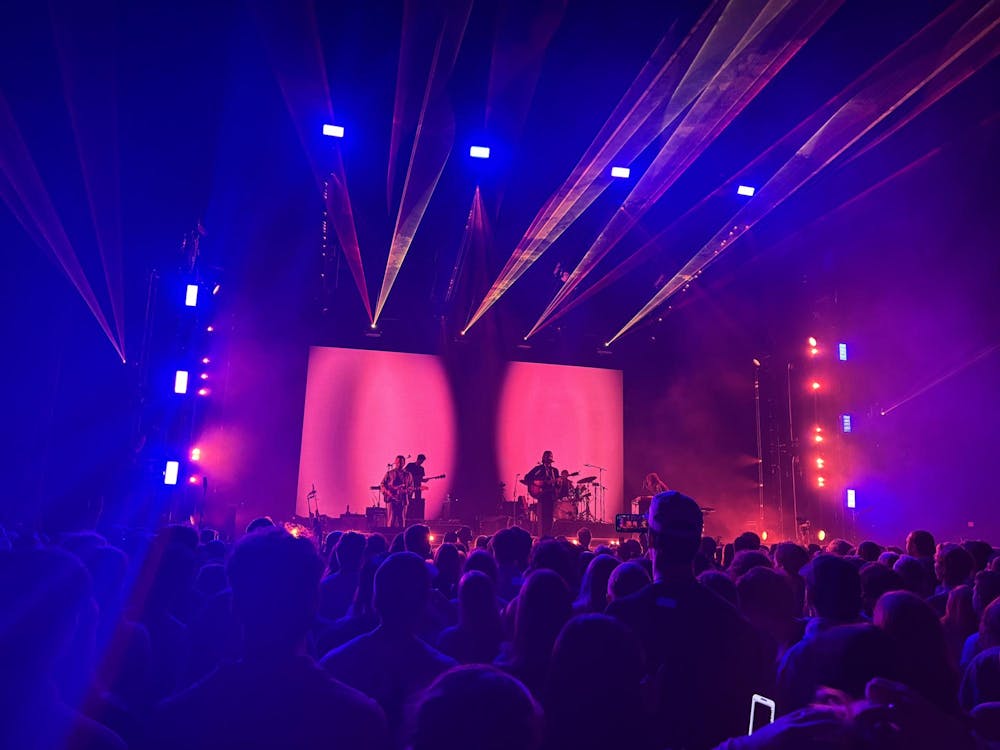From recent on-Grounds workshops to city-wide festivals, University students and community members all across Charlottesville have begun to embrace the unique medium of zines. The art form can be traced back to the 1920s, when they were used to spread the message of the Harlem Renaissance. Since then, artists have also used zines to speak on crucial subjects such as rights for the disabled, women’s reproductive rights, the dismantling of racial discrimination and more.
Zines are small booklets that can feature anything from stories to recipes to art to poems — the content is completely up to the artist’s choice. Most zines are handmade and contain a small amount of pages. Once the original form of the zine is complete, this small size makes it easy to photocopy for easier and wider distribution through activist circles and community spaces.
Recently, University students have been able to embrace this medium with student-led opportunities to attend two zine creation workshops and a showcase event organized by third-year College student Reese Robers. While the few zine workshops held at the University typically occur in the Shannon Library Scholar’s Lab, these events were the first student-run project, all held in Monroe Hill House.
Both workshops featured roughly ten students, and the showcase had many people moving in and out of the room to stop by and take zines. Robers described how she first became involved with zines after becoming inspired to create her own collection and seek out creative spaces that had access to zines.
“I was really interested in the concept of the zine, but there just wasn't a huge scene for it in Roanoke,” Robers said. “I didn't really find a huge wealth of zines where I was from, so I tried to get into it as much as I could in other places.”
All of the materials provided at the zine events were funded by the Miller Arts Scholars Program — an application-based, interdisciplinary collective of University student artists who work on individual projects. Robers organized the workshops and acquired the funding as the beginning of her own personal project.
“This is actually the start of the rest of my project, which is going to be incorporating all of everybody's zines and the scans that I took into a video project,” Robers said. “So having elements and stuff similar to that into a video zine since I just had an interest in zines from a young age.”
First-year College student Eva Geisinger created two zines in the student-run workshops, which she described as an open and collaborative space. One of her zines incorporated themes of music and nature alongside images of origami cranes, and another was centered around a creative short poem. Geisinger also spoke on how zines are both a creative outlet and a way to show art relaying voices that need to be heard.
“It can be anything that you want it to be, and it is often making a statement about what you think is right and what you think should change about the world,” Geisinger said. “It's about really just finding your individual voice in such a refined, small, creative space.”
Outside of the University, zines are still widely used in activism today, as the work of Jess Walters — a Fusion Lab Arts Research Fellow with the Center of Health, Humanities, and Ethics through the University of Virginia School of Medicine — has shown. Walters is a co-founder of the Charlottesville Zine Fest, which is an annual series of zine-making workshops that culminates in a festival where artists can showcase their work.
Over the course of her time as an activist, Walters has created zines to battle for legislation that will improve the lives of chronically ill and disabled individuals. For the past three years and in their capacity as a member of the National Kidney Foundation, Walters has created and presented mini zines for the Virginia House of Representatives, illustrating kidney disease information and the need for legislations such as the Living Donor Protection Act.
One mini zine called “Kidney Patient’s Point of View” speaks on the importance of the Living Donor Protection Act and is available on Jess Walters’s website. Walters commented on how using zines for advocacy purposes can leave a lasting impact on viewers.
“It puts a face on the problem, and it humanizes the entire issue,” Walters said. “That's an important part to me — looking at how are we heard? And I think this is just one example of a way that something in a creative media might shift how somebody approaches something.”
The University itself also has a noteworthy space to learn more about zines — the Zine Bakery project within the Scholar’s Lab, on the third floor of Shannon Library. The project consists of a large rack where zines are positioned to take and distribute, as well as resources for zine authors and their works. The rack will commonly feature up to 10 different zines with multiple copies of each, and a QR code that individuals can scan that will take them to the Zine Bakery’s description page on the University library website.
Students can visit the bakery outside the Scholar’s Lab entrance anytime and are encouraged to make original zines that can be featured on the rack. The co-director of the Scholar’s Lab Amanda Wyatt Visconti formed the Zine Bakery project in the early summer of 2024, which began with their own collection of zines that grew over time.
Visconti is proud to see that many students became interested in the project and said that the bakery is a place where they can feature topics students want to learn or hear about.
“One of the things I really like about having this public library space and zines is that I can put topics that are things students want, and students are able to see those subjects or people that can represent them,” Visconti said.
Visconti maintains the selection, making, printing and continuation of the project — many of the zines featured are either their own creations, or the works of artists online who give consent for free photocopying and distribution. As students are participating more with the bakery from classes or personal projects made in the Makerspace, Visconti appreciates the engagement and looks forward to more involvement.
“I’m really happy that it seems like there's been more interest, especially since January, in terms of people wanting to share information about the zines,” Visconti said. “I’m excited for the possibility of more local student and community zines to be on the rack.”
University students have echoed that statement and are looking forward to the possibility of a more regular zines community at the University. Second-year College student Abigail Fireison commented on the possibility of a zine club or larger activity for students.
“If someone were to start a zine club and had these meetings every other week or every week, and people got together to make zines and then distribute zines, I think that'd be cool,” Fireison said. “Sitting down and doing something that you don't necessarily get the chance to do every day creatively is a really cool thing to do.”
With the recent on-Grounds events creating growing student interest in zines, the Charlottesville Zine Fests have made the art scene available for a larger community as well. The first Charlottesville Zine Fest was held in 2023, and the event has been annual since.
The Fest features local artists displaying zines available for purchase and exchange, with the central theme of the event being the promotion of diverse voices and experiences. While the Charlottesville Fest was a smaller venue than other well-known national zine fests — such as the fests held in East Village, New York and San Francisco — it nurtured a close community for Charlottesville, according to the Charlottesville Zine Fest website, a zine is “a way for all of us to feel a little less alone in this world.”
The Charlottesville Zine Fest is free to attend every year and is often located near various organizations the Zine Fest has collaborated with. The upcoming Fest’s location and date have yet to be announced, but it is sure to bring more locally sourced artwork to Charlottesville and continue the growth of the zine scene.
As zine-making becomes increasingly prominent in the University and Charlottesville communities, Walters said that they were happy to see zines possibly forming a connection that can close the gap between any University and community organizations.
“I really love opportunities to bridge that gap,” Walters said. “I just think that it's a beautiful way to authentically build community, right? Because you get to have that, and with that liberty comes a sort of freedom to be oneself. In my work, I like to encourage people to see that they have that power.”







